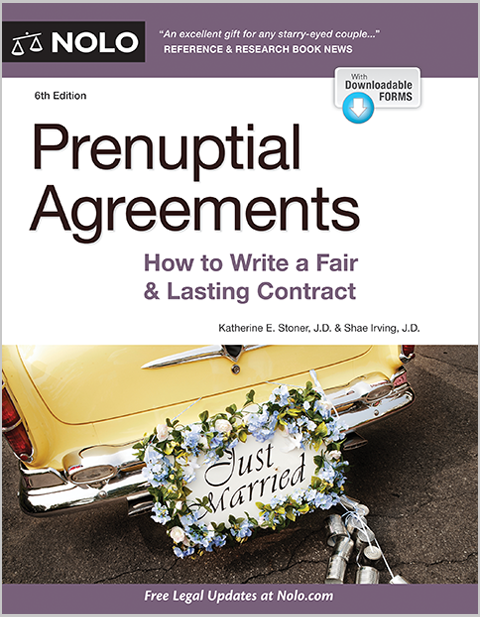Know your rights when a landlord won't rent to you because you are gay, lesbian, or transgender.
Most landlords care more about whether you pay the rent on time and take good care of the property than they do about your sexual orientation. Unfortunately, some landlords are nosy or flat-out prejudiced. For example, a prospective landlord might ask pointed questions when you apply for a rental ("Are you two, like, together?"), or a current landlord might send you a termination notice upon discovering that your relationship with your roommate is not platonic.
How you can respond to these forms of housing discrimination depends on:
- which laws—federal or state—protect you
- whether the discrimination takes place when you're applying for a rental or during the rental, and
- whether you have a long-term lease or a month-to-month rental agreement.
Laws That Provide Protection Against Sexual Orientation and Gender Identity Discrimination in Housing
Historically, federal law did not protect gays, lesbians, or transgender people from discrimination by landlords and other housing providers. In January 2021, however, President Biden issued the Executive Order on Preventing and Combating Discrimination on the Basis of Gender Identity or Sexual Orientation (the "Order"). The Order stated that going forward, the federal Fair Housing Act (42 U.S.C. 1681 and following) prohibited discrimination on the basis of gender identity and sexual orientation. In response to the Order, the U.S. Department of Housing and Urban Development (HUD) released a memo stating that HUD would begin accepting and investigating complaints of discrimination based on gender identity or sexual orientation.
If you believe that you have been subjected to illegal housing discrimination on the basis of gender identity or sexual orientation, you can file a federal fair housing complaint with HUD's Office of Fair Housing and Equal Opportunity (FHEO).
State and Local Housing Discrimination Laws
Many state and local laws address one or more of the following forms of discrimination.
- Sexual orientation discrimination. Discrimination that is based on the person's actual or perceived sexual orientation.
- Gender identity discrimination. Discrimination that is based on the person's internal understanding of their gender or on another's perception of their gender identity.
- Gender expression discrimination. Discrimination that is based on the person's gender-related appearance and behavior, whether or not this expression is stereotypically associated with the person's assigned sex at birth.
Each law has its own definition of these protected classes—check the law carefully to see exactly what is covered.
Several states and cities prohibit sexual orientation housing discrimination. Many of these same states and cities also prohibit gender identity and gender expression housing discrimination. Some laws differentiate between gender identity and gender expression discrimination; others lump the two forms of discrimination together. You'll want to check your state and local laws to find out whether they prohibit one, two, or all three of these forms of discrimination.
State and local laws change frequently. To find out how to pursue fair housing complaints based on sexual orientation, gender identity, and gender expression discrimination in your state, check with your state's fair housing office. You can find a list of state agencies on FHEO's website. For city and local information, check out the Human Rights Campaign's Municipality Database—you can search for your city or zip code to find out the current status of protections against housing discrimination. Finally, you can also contact the National Gay and Lesbian Task Force for more information.
What to Do When You Encounter Sexual Orientation or Gender Identity Discrimination
The timing of the discriminatory behavior directly affects what remedies you might have. As discussed below, you have limited options if the discrimination occurs at the application stage. However, if you experience discrimination after you've signed a lease or rental agreement, you have a number of options for fighting back.
When a Landlord Won't Rent to You
If you are denied a rental at the application stage, in many cases there's not much you can do about it. Most of the time, the landlord either doesn't tell you why you were rejected or invents a reasonable-sounding, nondiscriminatory explanation to conceal the true (discriminatory) reason. If the landlord's refusal was clearly based on gender identity or sexual orientation, you could pursue a claim under federal, state, or local law.
When Your Landlord Tries to Break Your Lease
If you have a lease, your tenancy cannot be terminated until the lease expires unless you have broken an important lease clause (such as failing to pay rent or violating a no-pets rule), or you have committed an illegal act.
So, a landlord who attempts to evict you solely on the grounds of your sexual orientation would have a hard time prevailing in a federal fair housing complaint. You can also file a fair housing complaint with your state fair housing office.
When Your Landlord Tries to End Your Month-to-Month Rental Agreement
Renters with month-to-month rental agreements might be in greater danger of eviction. Landlords can terminate month-to-month tenancies by giving the required notice, which is 30 days in most states. The landlord need not give a reason for the termination.
However, landlords are not allowed to terminate rental agreements for a discriminatory reason, so if you suspect sexual orientation discrimination, you can pursue a federal fair housing complaint or contact your state fair housing office.
Tenants in areas with rent control might have another avenue for complaints—most rent control laws also have eviction protection rules prohibiting termination of month to month tenants unless they have violated the rental agreement, have seriously broken the law (by selling drugs, for example), or the termination is based on enumerated "just causes" in the rent control or eviction protection law.
For More Information
Nolo's LGBTQ Law section also contains a wealth of articles addressing laws and rules that might affect members of the LGBTQ community.
Talk to a Lawyer
Need a lawyer? Start here.
How it Works
- Briefly tell us about your case
- Provide your contact information
- Choose attorneys to contact you
- Briefly tell us about your case
- Provide your contact information
- Choose attorneys to contact you



